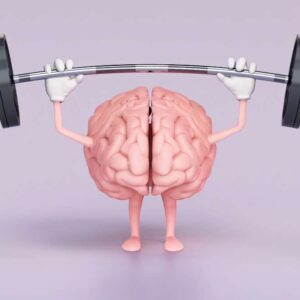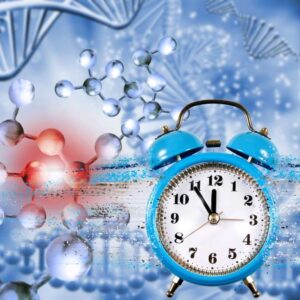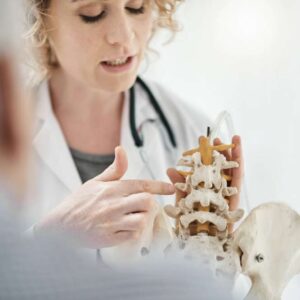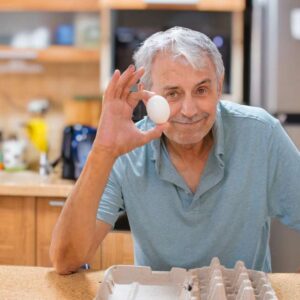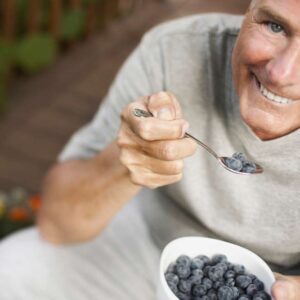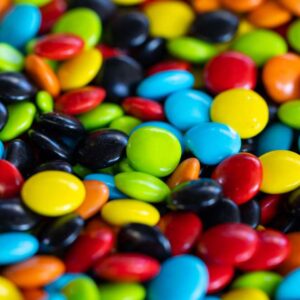
Is This Food Causing Your Joint Pain?
Are plants secretly trying to kill us?
Are all vegetables actually meant to be eaten by humans, or should some be avoided?
They are interesting questions, especially when you consider the defense mechanisms plants have. In fact, some plants produce compounds specifically to protect them from being eaten by insects and other predators.
Glycoalkaloids are one of these compounds. When a pest or predator eats a plant that produces these alkaloids, the compound binds to the cell membranes of the predator and causes its cells to burst open, killing the pest and protecting the plant.
Glycoalkaloids are found in many plants and vegetables but are concentrated in high amounts in plants from the nightshade family.
What are nightshades?
Nightshades are the common name for plants in the Solanaceae family, and include:
Tomatoes
Eggplants
Peppers, including spices from pepper like cayenne and paprika (but not black pepper — that’s a different plant)
Potatoes (but not sweet potatoes or yams)
Tobacco
Goji berries
Ashwagandha
There are poisonous nightshades as well, the most famous of which is the deadly belladonna. In fact, it wasn’t until about the 1800s that humans ventured to eat other plants in the nightshade family for fear they also were deadly.
How might nightshades cause joint pain?
The thought behind how glycoalkaloids in nightshade could present a problem in humans is that if you ingest considerable amounts of them, the alkaloids can damage the cell membranes in the intestines and lead to increased intestinal permeability, otherwise known as “leaky gut.”
The problem with “leaky gut” is that it allows bacteria and undigested proteins from food to enter the bloodstream. The immune system does not recognize these foreign proteins and bacteria, and mounts an attack against them that invokes inflammation. If the bacteria or proteins wind up accumulating in the fluid and tissues around the joints, the inflammatory response is localized and causes joint pain.
To make matters worse, some of the body’s tissues can closely resemble proteins from foods. So if the body is primed to attack a particular protein that happens to resemble joint tissue, joint inflammation can ensue.
What’s the evidence?
Researchers have found that glycoalkaloids from potatoes do indeed have harmful effects on intestinal cells — at least in mice.
In one study, mice that were fed deep-fried potato skins had increased levels of inflammatory markers and enhanced intestinal permeability. (The deep frying increased the glycoalkaloid content of the potato skins.) [1]
There haven’t been any placebo-controlled human studies that definitively shown nightshades can cause joint pain. However, there are extensive reports of folks that eliminated nightshades and experienced pain relief.
The closest thing to a human study was a survey done in the 1970s by Dr. N.F. Childers. Out of 763 people who responded to the survey, 72% responded that a nightshade-free diet had positive results for improving their joint pain. Dr. Childers did another survey in 1985, and 95% of 434 responders said a nightshade-free diet helped.[2]
Surveys like this certainly have their limitations for proving causality, but the magnitude of result is intriguing. Additionally, a simple Google search of “nightshades and joint pain” brings about countless anecdotal reports of people who have experienced improvement by eliminating nightshades.
Many alternative health practitioners advise eliminating nightshades for 30 days if you have joint pain or any other autoimmune inflammatory condition and then see if your symptoms improve. Then after 30 days, you reintroduce the foods and see if your symptoms return.
Bottom line: If you have joint pain, it might be worthwhile to try a nightshade-free diet for 30 days and see if it helps. It certainly won’t hurt to eliminate those foods for a month.
You can also reduce the glycoalkaloid content of certain nightshades by preparing them properly. Peel potatoes — most alkaloids are found in the skin. Avoid green tomatoes and sprouting potatoes — unripe or sprouting nightshades have higher alkaloid content. Ripe tomatoes contain far fewer glycoalkaloids compared with potatoes. Eggplants fall between potatoes and tomatoes.
Other ways to relieve joint pain
The cool thing about Mother Nature is that she has provided us with other plants that can help reduce joint discomfort.
Curcumin, the active component in turmeric (the bright yellow spice in curry) has strong anti-inflammatory properties that can help reduce joint pain.
Boswellia, found in the frankincense plant, has shown really great results in human studies to reduce joint pain and improve mobility.
White willow bark is the natural source of salicin and can help promote joint comfort.
Enzymes from plants are also showing great promise in promoting a healthy inflammatory response, which can help keep joints comfortable. When taken on an empty stomach, enzymes can help break down proteins such as fibrin, which can contribute to inflammation.
In fact, an enzyme from pineapple called bromelain has been shown to reduce mild knee pain in two human studies.[3] [4]
Bromelain and other helpful enzymes are the foundation of Enza-Soothe, Living Well’s joint comfort formula. We also added herbs such as white willow bark and devil’s claw to the formula, to help promote joint comfort.
We’ve gotten some really great feedback on the product. One gentleman told us: “I’ve noticed after a day on the golf course at age 57 I have far less joint discomfort.”
You can learn more about Enza-Soothe here.
Have you tried eliminating nightshades from your diet and had improvements in your joint pain? Let us know! livingwelldaily@lfb.org.
To living well,
Jasmine LeMaster
[1] Iablokov V., et al. Naturally occurring glycoalkaloids in potatoes aggravate intestinal inflammation in two mouse models of inflammatory bowel disease. Dig Dis Sci. 2010 Nov;55(11):3078-85. Epub 2010 Mar 3.
[2] Childers, N. F. et al. An Apparent Relation of Nightshades (Solanaceae) to Arthritis. Journal of Neurological and Orthopedic Medical Surgery (1993) 12:227-231
[3] Akhtar NM, et al. Clin Rheumatol. 2004 Oct;23(5):410-5. Epub 2004 Jul 24.
[4] Waler AF, et al. Bromelain reduces mild acute knee pain and improves well-being in a dose-dependent fashion in an open study of otherwise healthy adults. Phytomedicine. 2002 Dec;9(8):681-6.
View More Free Articles
Get Intermittent Fasting Benefits Without Going Hungry
Intermittent fasting, which involves cycling between eating and fasting periods, is effective. There’s plenty of evidence for that. It’s not just weight loss, either. Intermittent fasting has significant benefits for metabolic health. However, many people find fasting difficult to stick to—and others can’t do it at all due to medical issues—so they miss out on...
Just Diagnosed with Hypertension? —6 Things to Do Next
You’ve been diagnosed with high blood pressure—now what? First, take a breath. You’re not alone—over 30 percent of adults worldwide have hypertension. That makes it one of the most common health issues… and a top cause of preventable deaths. The good news is that, unlike some conditions that can leave you feeling helpless, high blood...
Brain Games Are USELESS—Do These 5 Things Instead
I’ve seen a lot of lists lately claiming to have the secrets that keep your brain from turning into mush as you age. They typically advise activities such as doing crosswords, learning Spanish, or taking up the accordion. Challenging your mind with new learning experiences is definitely a great way to keep your brain engaged...
This $5 Fix REVERSES Cellular Aging in Just 6 Months
You take your vitamins, eat your vegetables, and feel healthy—so your nutrition is covered… right? Well, new research suggests that even health-conscious older adults may be missing crucial nutrients that keep their cells functioning like those of younger people. The trouble is that as we age, our bodies become less efficient at absorbing nutrients from...
Mailbag: Doctors Get Bone Health WRONG—Here's What Really Works
“Thank you so much for answering this. With millions of women who are seniors over 70 facing a diagnosis of osteoporosis, this is my question. What can we do naturally to help improve our bone density, especially in the spine lumber 1 and 2? Also, how do we help improve bone density in the femur...
Critical Brain Nutrient Missing In 9 Out of 10 American Diets
You’ve probably heard plenty about brain-boosting omega-3s, antioxidants, and B vitamins. But there’s another nutrient that’s just as critical for your cognitive health. However, it’s been flying under the radar… until now. Mounting evidence suggests this overlooked compound could be key to protecting your brain and enhancing memory. It may even reduce your risk of...
"Miracle Berry" Supercharges Your Microbiome
Happy Father’s Day to all the dads and granddads who’ve shared their wisdom, strength, and love through the years. Thank you for teaching us that the best medicine is laughter, love, and a father’s caring heart. Want to upgrade your health but don’t want complicated diets or expensive supplements? Science just revealed a delicious way...
This "Healthy" Sweetener is Sabotaging Your Weight Loss
Everyone knows that a balanced diet and regular exercise are crucial for maintaining a healthy weight. But what if the “diet” products you’re using to cut calories make you hungrier, so you eat more? Well, a shocking new study suggests that a popular artificial sweetener is secretly sabotaging your weight loss efforts. Let’s dig into...
“Banned in Europe” Food Additive Triggers Hormone Chaos
If you’ve ever enjoyed the bright white frosting on a cookie or vibrantly colored candy, you’ve likely consumed titanium dioxide. This common food additive, used to make products look more appealing, is now at the center of a growing health debate. Titanium dioxide is essentially makeup for food—a white powder that enhances colors and makes...
Your Phone Is DESTROYING Your Brain—Here's How to Fight Back
Ever notice how—after a day of bouncing between your phone, computer, and TV—your brain feels like it’s been stuffed with cotton? You may struggle to remember what you need at the store, fumble for words, or stare blankly at your crossword puzzle. It’s not because you’re getting older—it’s what your devices are doing to your...


